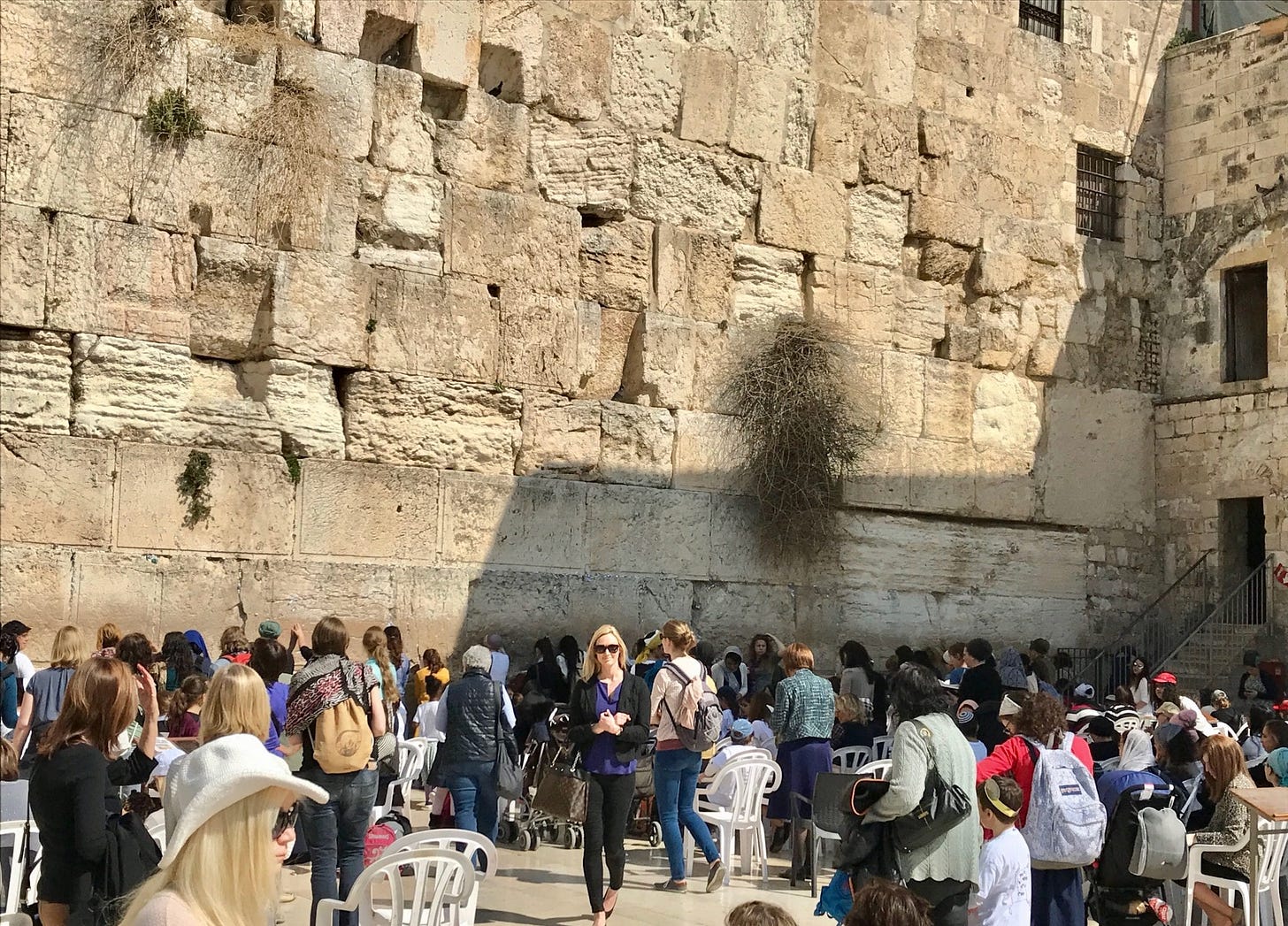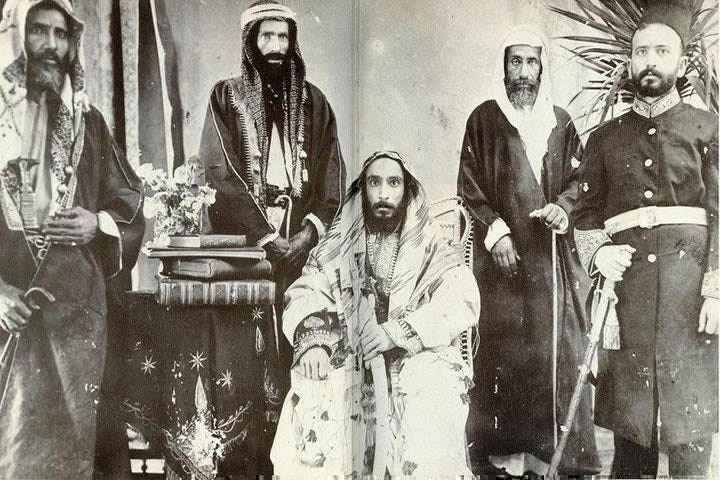West Asia--Basic History and Culture Background
Tulsi Gabbard talked to Assad! What does it all mean?
The Syrian regime fell last week. An onslaught by Sunni Islamic militants overwhelmed the Shia-allied Assad government. The Sunni forces were funded, trained, equipped, and provided air support by Israel, the US, and Turkey. These forces are the same that the US fought for a couple decades in Iraq--variously designated ISIS, ISIL, Al-Qaeda, or other names. Their goals, beliefs, and methods are the same as the formerly demonized Islamic extremists we spent hundreds of billions of dollars, 15+ years, and thousands of American lives fighting.
Tulsi Gabbard and the MilInt Complex
Gabbard's nomination as Director of National Intelligence has neo-cons/PC-Progs terrified. She's reached out to, and met with, leaders they demonize, specifically Assad, the leader of Syria just deposed by ISIS/Al-Qaeda/US/Israel/Turkey. Gabbard seems to be focused on American interests--doing the right thing for America. The neo-con/PC Prog warmongers want non-stop war and chaos in the region. Their goal is to destroy strong leaders in all countries whose names don't end in -real. One by one, these countries have been castrated: Iraq, Syria, Lebanon, Libya, Egypt, Tunisia, Sudan, leaving them all in more or less chaos.
What the hell is going on?
Americans, with little insight or understanding of the history and beliefs of the region, can't figure out what's going on, who's who, or what's what. Combine that lack of insight with active measures taken by our media and government to obscure American actions, and screen from the American public what's really going on, and you have a confused American reaction to the chaos spreading in West Asia.
For a peek behind the veil of confusion, here's a short primer on who's who, and what's what as these events continue to unfold.
Syria/Lebanon/Palestine/Jordan (Levant)
This area was under Turkish (Ottoman) rule for centuries, until they lost WW1 (see Laurence of Arabia for that story). Muslim, Christian, and Jews, lived relatively peacefully together under the Turks. The agreement to end WW1, France and the UK, with Russian and American acquiescence, split the area into mandates, arbitrarily divided chunks of geography. The mandated areas are the genesis of today's national boundaries.
Syria, Lebanon, Jordan, and Palestine were governed as pseudo-colonies of the European powers. The natives were more or less cooperative with the colonizers. But, from 1918 till 1945, nationalist demands for self-rule grew. The Soviet Union, following its belief in spreading global revolution, supported many locals in their struggles against the colonizers. This struggle continued up to WW2, through the brief cooperation between the Soviets and the WW2 Allies. Nationalist efforts were muted until the end of the war.
Israel
Quickly after the end of WW2, the United Nations was formed. One of the UN's first actions, in 1948, was to take a chunk of land from Palestine (then under the British Mandate) to form a Jewish theocracy. This action was the result of aggressive lobbying by militant Zionists in all the Allied nations. Zionists believe that Palestine is the homeland of Jews, and that they are therefore justified in any actions to seize land that they deem part of their homeland. Jewish immigrants acquired land from Palestinians through various means--including purchase, appropriation, and forced sales.

The British rulers of the Mandate attempted to control the Jewish actions. The Zionists formed terrorist bands--the Irgun, the Stern Gang, and Haganah among them. These terrorists amplified the Jewish efforts to take over Palestine. They bullied Palestinians to leave their ancestral lands, and massacred many who resisted. The terrorists also targeted the British. One Zionist terror attack bombed the King David Hotel where many British colonial officials congregated, killing scores. These Zionist terror attacks were the opening salvo in the modern use of political terror in the region.
Nearby Arab nations were outraged by the happenings in Palestine--from seizure of the land, expulsion of Palestinians, terror attacks, and other outrages. Overall, they saw Israel as a destabilizing threat to the region, and their communal interests. A series of wars were launched by Arab states against Israel.
Generally, the Arabs were supported by the Soviet Union, and Israel was supported by the US and European nations. These wars were won by Israel, and various bits of territory were controlled by Israel after these wars. Since those wars, the Palestinians have struggled for control of their own country, while Israel maintains a vice grip on Palestinian lands. Regional Muslim countries have supported Palestinian statehood, in various ways.
Islam: Sunni and Shia
The Muslim faith has two main branches: Sunni and Shia. The difference between the two is based in the passing of leadership of Islam after the death of the Prophet Muhammed. Sunnis accept the leaders after Muhammed as men who were "rightly-guided." In Sunni belief, it is a grave sin to raise any person to the level of God.
In stark contrast, Shias view a certain martyred leader as a saint. They celebrate his martyrdom, and pray to him and other "saints."
Thus, much like the schism between Catholics and Protestants, Sunni and Shia have the same basic belief in one God and Muhammed as the last Prophet, but diverge on certain points.
Some Sunni branches are militantly against the Shia beliefs and practices, viewing them as deadly sins. This hostility leads to conflicts, and violence.
Al-Qaeda/ISIS/ISIL are fundamentalist Sunni.

Hezballah is a Shia political, social, military organization based in Lebanon.
Iran
Iran is a Persian Shia theocracy. In the Iranian revolution of 1979, a popular uprising against the Shah, the Iranian king, led by Shia clerics, resulted in the Shah fleeing Iran, and the clerics seizing control of the country. Iranians are not (generally speaking) Arabs. They are the proud heirs of the Persian empires that go far back in antiquity. British and American intelligence staged a coup against the democratically elected Prime Minister, Mosaddegh, in 1953. The 1979 revolution was a delayed reaction to this.
Saudi Arabia
An Arab Sunni theocracy, home of Islam’s “Two Holy Mosques.”
American Interests
There are no vital American interests in the regional conflicts in West Asia. We have all the natural resources that are available there--oil, or others. Our trade with the region is negligible. The sea routes from the Mediterranean through the Suez Canal, and out of the Red Sea into the Indian Ocean are of no value to America. The various groups in the region have been fighting each other for thousands of years. The bitter rivalries, hatreds, ethnic, religious, tribal, and others create hatred that fuels non-stop conflict. Meddling or intervening, supporting one side or the other, simply prolongs and fuels the conflicts.
Factions in the region are expert at manipulating American politicians, media, and public opinion. The neo-conservatives are joined at the hip with Israel, and whip America into a frenzy, with their media connections, over any perceived threat to their hostile foreign sponsor. We pour billion upon billions of dollars into Israel, and into other nearby nations to bribe them to not attack Israel. And America receives nothing in return, in fact, less than nothing.
Acting in the interest of America, putting America first, making America Great Again, would see us pulling out all American military forces, ending military and foreign aid, cutting off every one of the nations in the region. Letting them work it out themselves, with no waste of American blood or treasure. They've fought for three thousand years. Nothing we can do about it. And it's none of our business.
Long Memories
It's important to understand that all the players, groups, factions, races, creeds in West Asia have thousands of years of memories of their former success, atrocities committed by other groups against them. These tribal memories result in never-ending feuds and grudges.
These are the bare bones basic background to what's happening today in West Asia (or the "Middle East").











